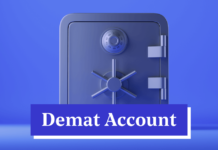Fraud is a major problem for businesses of all sizes in Australia, with an estimated cost of billions annually. Accountants play a vital role in detecting and preventing fraud, and their expertise can be invaluable in protecting businesses from financial losses.
Corporate advisory accountants play a critical role in detecting and preventing fraud. They have the skills and knowledge to identify red flags and irregularities in financial statements and other financial records. They can also help businesses to develop and implement fraud prevention measures.
What is fraud?
Fraud is any act of deception or dishonesty that is carried out to gain an unfair advantage. It can take many forms, including:
- Asset misappropriation: This type of fraud involves stealing or embezzling a company’s assets, such as cash, inventory, or equipment.
- Corruption: This type of fraud involves bribing or bribing someone to gain an unfair advantage.
- Financial reporting fraud: This type of fraud involves misrepresenting a company’s financial condition in its financial statements.
How can accountants detect fraud?
Accountants can detect fraud by performing a number of procedures, including:
- Analyzing financial statements: Accountants can look for unusual revenue, expenses, or profit fluctuations. They can also look for inconsistencies between different financial statements.
- Testing internal controls: Accountants can test the effectiveness of a company’s internal controls to identify any weaknesses that fraudsters could exploit.
- Interviewing employees: Accountants can interview employees to get their insights into the company’s operations and identify potential fraud risks.
How can accountants prevent fraud?
Accountants can help businesses prevent fraud by developing and implementing fraud prevention measures, such as:
- Establishing a strong code of ethics: A strong code of ethics sets clear expectations for employee behaviour and can help to deter fraud.
- Implementing strong internal controls: Internal controls are designed to prevent and detect fraud. Accountants can help businesses develop and implement appropriate internal controls for their size and industry.
- Conducting regular fraud risk assessments: Fraud risk assessments can help businesses to identify and address their fraud risks. Accountants can help businesses to conduct regular fraud risk assessments and to update their fraud prevention measures as needed.
The Role of Corporate Advisory Accountants in Fraud Detection and Prevention
Corporate advisory accountants play a specialized role in fraud detection and prevention. They have the skills and experience to help businesses develop and implement a comprehensive fraud prevention program. They can also help businesses to investigate and respond to suspected fraud.
Benefits of Working With a Corporate Advisory Accountant
There are a number of benefits to working with a corporate advisory accountant for fraud detection and prevention, including:
- Expertise: Corporate advisory accountants have the specialized skills and experience to help businesses to detect and prevent fraud.
- Independence: Corporate advisory accountants are independent of the businesses they work with, which allows them to provide objective and impartial advice.
- Confidentiality: Corporate advisory accountants are bound by confidentiality agreements, which ensures that any sensitive information will be kept confidential.
Conclusion
Accountants play a vital role in detecting and preventing fraud. Their expertise and skills can be invaluable in protecting businesses from financial losses. Businesses serious about preventing fraud should consider working with a corporate advisory accountant.
Write and Win: Participate in Creative writing Contest & International Essay Contest and win fabulous prizes.
















